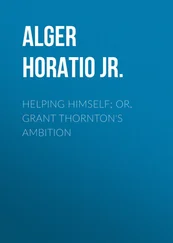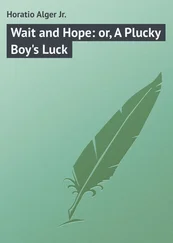Horatio Alger - Andy Grant's Pluck
Здесь есть возможность читать онлайн «Horatio Alger - Andy Grant's Pluck» — ознакомительный отрывок электронной книги совершенно бесплатно, а после прочтения отрывка купить полную версию. В некоторых случаях можно слушать аудио, скачать через торрент в формате fb2 и присутствует краткое содержание. Издательство: Иностранный паблик, Жанр: foreign_children, literature_19, foreign_antique, foreign_prose, на английском языке. Описание произведения, (предисловие) а так же отзывы посетителей доступны на портале библиотеки ЛибКат.
- Название:Andy Grant's Pluck
- Автор:
- Издательство:Иностранный паблик
- Жанр:
- Год:неизвестен
- ISBN:нет данных
- Рейтинг книги:3 / 5. Голосов: 1
-
Избранное:Добавить в избранное
- Отзывы:
-
Ваша оценка:
- 60
- 1
- 2
- 3
- 4
- 5
Andy Grant's Pluck: краткое содержание, описание и аннотация
Предлагаем к чтению аннотацию, описание, краткое содержание или предисловие (зависит от того, что написал сам автор книги «Andy Grant's Pluck»). Если вы не нашли необходимую информацию о книге — напишите в комментариях, мы постараемся отыскать её.
Andy Grant's Pluck — читать онлайн ознакомительный отрывок
Ниже представлен текст книги, разбитый по страницам. Система сохранения места последней прочитанной страницы, позволяет с удобством читать онлайн бесплатно книгу «Andy Grant's Pluck», без необходимости каждый раз заново искать на чём Вы остановились. Поставьте закладку, и сможете в любой момент перейти на страницу, на которой закончили чтение.
Интервал:
Закладка:
The first to come forward was Conrad Carter. He was dressed in a handsome boating costume, and his manner indicated great confidence. He looked around for Valentine, but the latter made no motion toward the shore, though his boat was in the pond drawn up with the rest.
"Aren't you going to row, Valentine?" asked Conrad, in surprise.
"No; I have lent my boat to Andy Grant."
At the same time Andy, in his ordinary attire, came forward, and stepped into Valentine's boat.
Conrad arched his brows in surprise. He had been disappointed to find that Valentine would not row, but he was quite as well pleased at the prospect of beating Andy.
He was rather surprised, however, as he had never heard that Andy could row.
"He must be a fool to think of rowing against me," he said to himself.
Next came Jimmy Morris, who took his place in one of Serwin's boats.
Two other boys also appeared in hired boats, one of them being Dennis
Carlyle, a friend of John Larkin.
When the boats were in line, a superintendent gave the signal.
Conrad got the first start. The others kept together, a length or two behind Conrad. Andy did not appear to be exerting himself, but his strokes showed a smoothness that was lacking in any of the rest.
Mr. Gale, the donor of the prize, who was himself a good rower, took notice of him.
"Who is that boy?" he asked, pointing to Andy. "I don't think I have seen him before."
"It is Andy Grant, the son of Farmer Grant."
"Why haven't I seen him before?"
"He has been absent at school—at Penhurst Academy."
"He knows how to row. See how he handles his oars."
"I didn't know he was a rower."
"He is, and a good one. I shouldn't be surprised if he wins the race."
"What, against Conrad Carter?" asked the superintendent, incredulously.
"Yes. It is easy to see that he has been trained, while Conrad, though he pulls a strong oar, rows like a country amateur."
Conrad was so intent upon his own work that he had not had an opportunity of watching his competitors. When he had nearly reached the point selected on the other bank, he turned about and saw Andy close behind him.
Andy was not apparently exerting himself, but pulled a strong, steady stroke, and seemed quite free from excitement. For the first time Conrad saw that he was a competitor not to be despised.
After the turn Conrad and Andy led the procession. Next came Jimmy
Morris, and last of all Dennis Carlyle.
The latter managed to catch a crab, and in his attempt to right himself tumbled into the water.
"Don't mind me!" he called out humorously. "I am only taking a bath."
So the other contestants kept on, in the same order.
But this was not to continue. Suddenly Andy made a spurt and forged ahead of Conrad. The young aristocrat could hardly believe his eyes when he saw Valentine's boat, impelled by a competitor whom he had despised, take the leading place.
He flushed with vexation and made a desperate effort to regain his lost position. But he was excited, and did not use his strength to the best advantage.
To his great annoyance he saw that Andy was continuing to gain upon him, and that without any great effort. His smooth, steady stroke was most effective. Even the unpracticed eye could see his superiority to any of his competitors.
When the goal was reached he was five lengths ahead of Conrad, and twelve lengths ahead of Jimmy Morris.
It was a genuine surprise to the spectators, and a great shout went up.
"Three cheers for Andy Grant!"
Andy smiled, and he raised his hat in acknowledgment of the compliment.
Mr. Gale pressed forward and greeted the young victor.
"You have done yourself credit," he said. "You know how to row. Where did you learn?"
"At Penhurst Academy; I was trained by a Harvard oarsman."
"He understood his business, and so do you. I have great pleasure in presenting you with the prize."
With a sullen look Conrad listened to those words. Without a word he sprang on shore, and, as soon as he could, turned his back upon the picnic.
"Conrad is terribly disappointed!" said Valentine. "You have made yourself famous, Andy."
CHAPTER VI.
A LIBERAL OFFER
Thoroughly mortified and crestfallen, Conrad went home. He hoped to go up to his room without observation, but his father noticed his entrance.
"Well, Conrad," he said, with a smile, "did you carry off the honors at the picnic?"
"No, I didn't," answered Conrad, bitterly.
"Did Valentine Burns defeat you?"
"No."
"Who did win the prize?"
"Andy Grant."
Squire Carter was amazed.
"Can he row?" he ejaculated.
"Yes, a little."
"But he beat you?"
"I tell you how it was, father," said Conrad, who had decided upon his story. "I was well ahead till we got halfway back, when I got a terrible pain in my arm. I must have strained it, I think. Of course I couldn't do anything after that, and Andy, who was next to me, went in and won."
Squire Carter never thought of doubting Conrad's story. His pride extended to his family and all connected with him, and he felt satisfied that Conrad was the best rower in the village.
"Where did the Grant boy learn to row?" he asked.
"I heard him tell Mr. Gale that he learned at the academy."
"You don't think he is equal to you?"
"Of course he isn't. I am miles ahead of him."
"It was very unfortunate that your arm gave out. You had better speak to your mother, and she will put some arnica on it."
"I will," said Conrad cunningly. "I would rather have had any boy beat me than that upstart, Andy Grant. He will put on no end of airs. Besides, I shall miss the money."
"That, at any rate, I can make up to you. Here are two five-dollar bills."
"Thank you, father," said Conrad, as, with much satisfaction, he pocketed the bills. "It was lucky I thought about the strain," he said to himself. "All the same, it is awfully humiliating to be beaten by that beggar."
"How do you think Conrad accounts for his defeat, Andy?" said Valentine the next day.
"I can't tell."
"He says he strained the muscles of his arm."
Andy smiled.
"If it will make him feel any better, I have no objection to that explanation."
"His father has given him ten dollars, so he will not lose any money.
But he won't get any of the boys to believe his story."
"The money is very acceptable to me," said Andy. "If I had lost, my father couldn't have made it up to me."
At five o'clock, on his way to the post office, Andy met Mr. Gale.
Walter Gale was a young man about twenty-five. He had a pleasant face, and his manner was genial. He had a strong sympathy with boys, and he was a favorite with them.
"Well, Andrew," he said; "have you recovered from your exertions in the boat race?"
"Oh, yes; I am used to rowing, and felt very little fatigue."
"I hear that Conrad is very much mortified by his defeat."
"I believe he is. He felt sure of winning."
"And he would have done so if you had remained out of the list."
"He told Valentine Burns that he strained the muscles of his arm, and that this defeated him."
"I should think better of him if he would acknowledge that he was fairly beaten. Are you at leisure this evening?"
"Yes, sir."
"Then call upon me at the hotel. I shall be glad to know you better."
This invitation Andy was very glad to accept. He was drawn to the young man, and felt that he was likely to prove a sincere friend.
At seven o'clock he left the farmhouse, and on arriving at the hotel found Mr. Gale sitting on the piazza.
"I was looking for you," said the young man. "Come up to my room."
He led the way to a front corner apartment on the second floor. It was the best room in the hotel, and he had furnished it in the most comfortable and attractive manner. Pictures hung on the walls, and there was a bookcase containing a goodly array of volumes.
Читать дальшеИнтервал:
Закладка:
Похожие книги на «Andy Grant's Pluck»
Представляем Вашему вниманию похожие книги на «Andy Grant's Pluck» списком для выбора. Мы отобрали схожую по названию и смыслу литературу в надежде предоставить читателям больше вариантов отыскать новые, интересные, ещё непрочитанные произведения.
Обсуждение, отзывы о книге «Andy Grant's Pluck» и просто собственные мнения читателей. Оставьте ваши комментарии, напишите, что Вы думаете о произведении, его смысле или главных героях. Укажите что конкретно понравилось, а что нет, и почему Вы так считаете.












